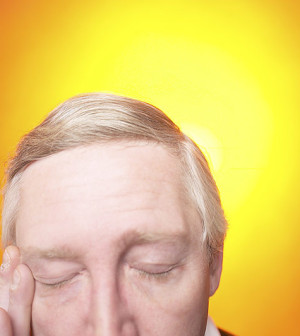- The Best Time of Day to Drink Bone Broth to Maximize Health Benefits
- 8 Ways to Increase Dopamine Naturally
- 7 Best Breads for Maintaining Stable Blood Sugar
- Gelatin vs. Collagen: Which is Best for Skin, Nails, and Joints?
- The Long-Term Effects of Daily Turmeric Supplements on Liver Health
- Could Your Grocery Store Meat Be Causing Recurring UTIs?
- Are You Making This Expensive Thermostat Error This Winter?
- Recognizing the Signs of Hypothyroidism
- 10 Strategies to Overcome Insomnia
- Could Artificial Sweeteners Be Aging the Brain Faster?
Hearing Loss Might Make Elderly Feel More Isolated

Many elderly people tend to be less outgoing the older they get, but those with hearing loss may become even more socially isolated, according to a new study.
Researchers in Sweden cautioned that hearing loss could affect older people’s well-being. Therefore, diagnosing hearing loss and treating the condition with hearing aids should be supported, they explained in a recent issue of the Journal of Personality.
“Our previous studies have shown that outgoing individuals are happier with their lives,” said study author Anne Ingeborg Berg, licensed psychologist and researcher at the department of psychology at the University of Gothenburg.
“It is hypothesized that an outgoing personality reflects a positive approach to life, but it also probably shows how important it is for most people to share both joy and sadness with others,” she said in a university news release.
“Even if we can’t conclude anything about causal relationships, we can guess that the link between hearing loss and social withdrawal forms a potential threat to older people’s well-being,” Berg stated.
The six-year study involved 400 people aged 80 to 98 years. The participants’ physical and mental health was examined every two years. The investigators also assessed aspects of the seniors’ personalities, such as how outgoing they were.
The study found that the participants who suffered hearing loss were less outgoing — even if they remained emotionally stable. The researchers pointed out that they did not find a connection between increased social isolation and physical or mental impairments, or problems the older people had in finding social activities. They concluded that hearing loss is what made the older people less outgoing.
“To our knowledge, this is the first time a link between hearing and personality changes has been established in longitudinal studies,” Berg noted in the news release.
“Surprisingly, we did not find that declining overall health and functional capacity make people less outgoing. But hearing loss directly affects the quality of social situations,” explained Berg. “If the perceived quality of social interaction goes down, it may eventually affect whether and how we relate to others.”
More information
The American Speech-Language-Hearing Association has more about hearing loss.
Source: HealthDay
Copyright © 2026 HealthDay. All rights reserved.










